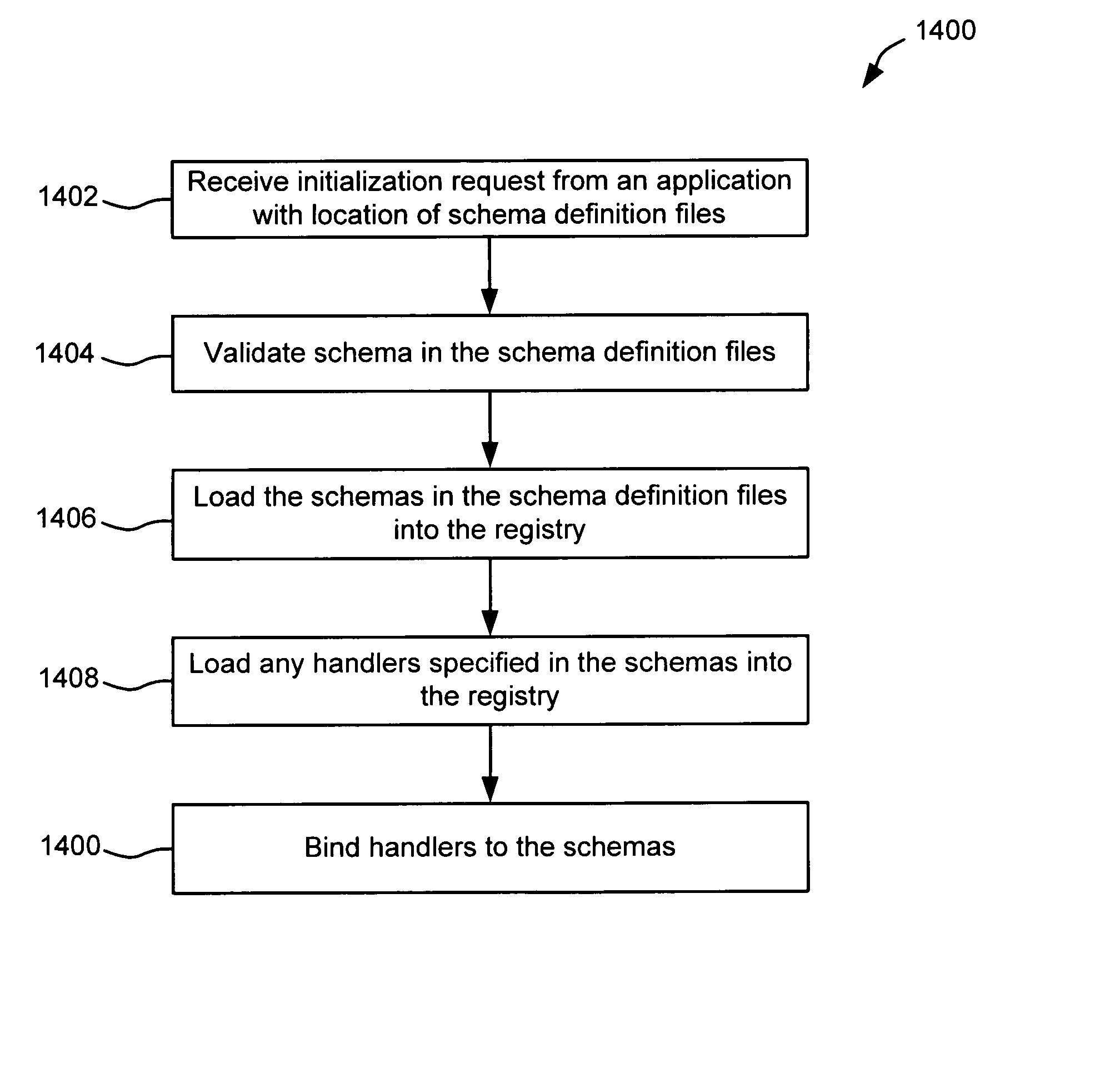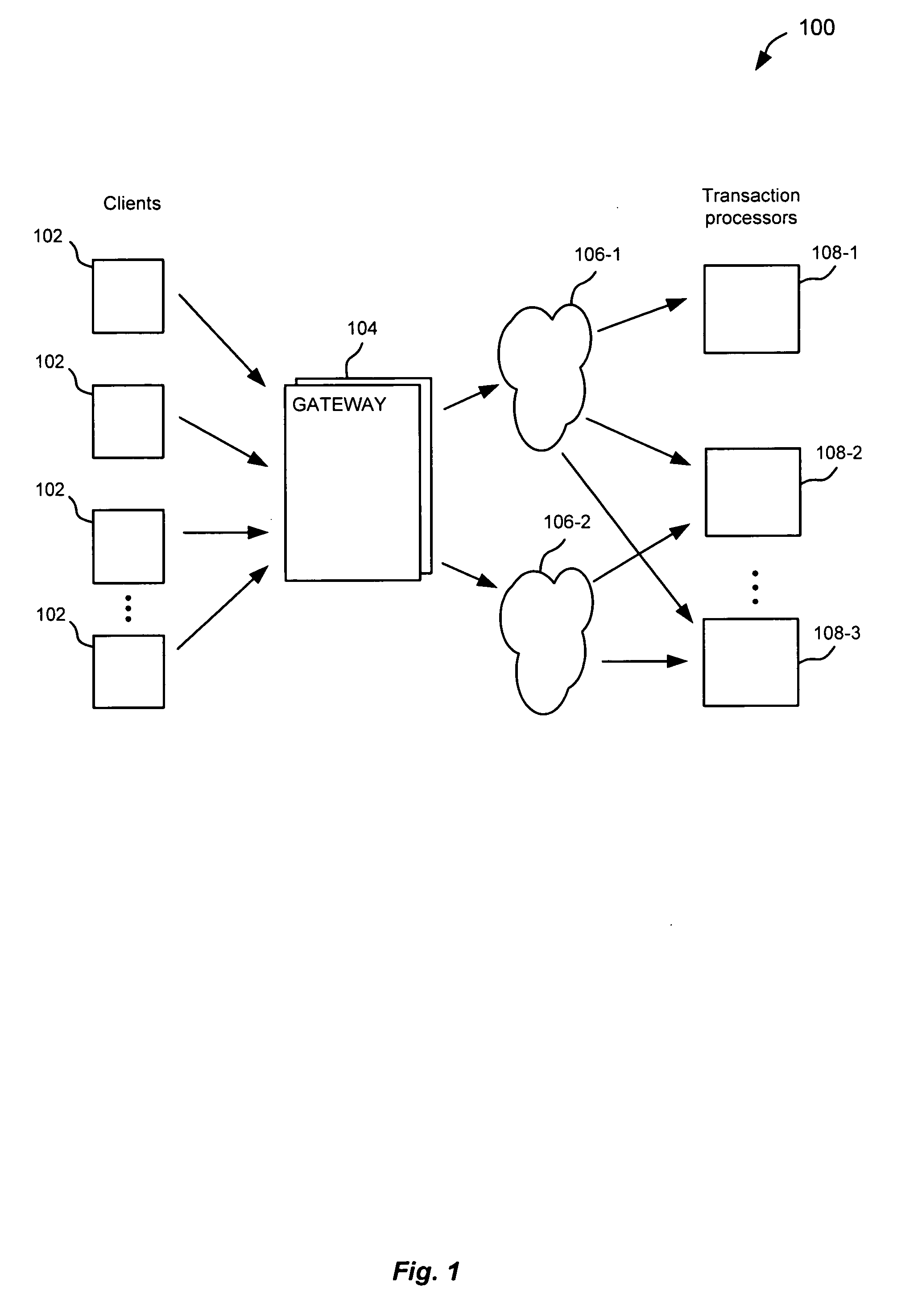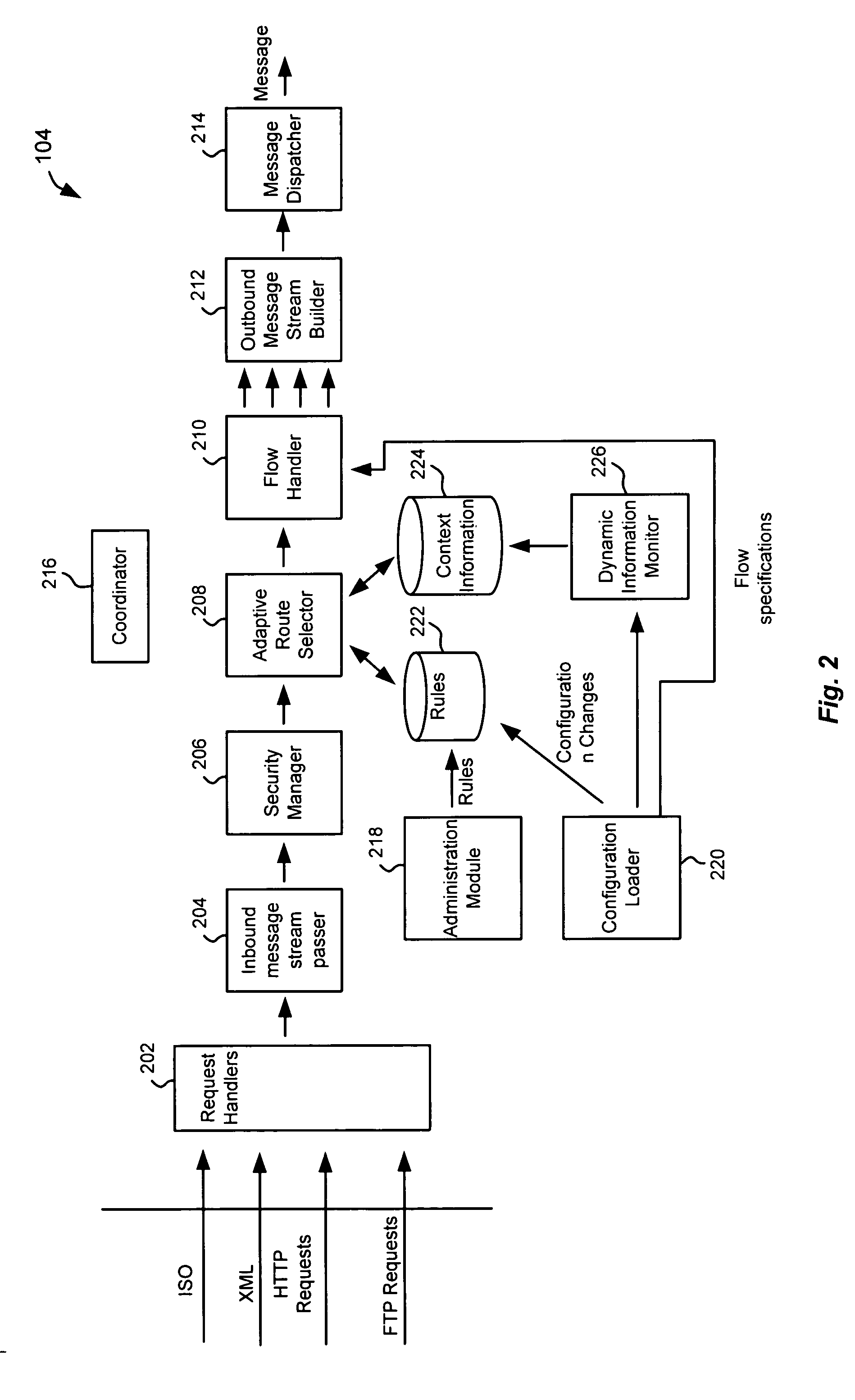Schema-based dynamic parse/build engine for parsing multi-format messages
a dynamic parsing and multi-format technology, applied in the field of parsing/build engines, can solve the problems of reducing the performance of translating messages using it, interpreting a certain set of messages, and reducing the speed of the engine, so as to reduce the amount of memory needed, improve performance, and speed advantage
- Summary
- Abstract
- Description
- Claims
- Application Information
AI Technical Summary
Benefits of technology
Problems solved by technology
Method used
Image
Examples
example message
Fields used in IMF (Internal Message Format)
[0136]FIG. 14A depicts an example of the fields used for a particular message object 1010 which includes a number of object IDs (OIDs) for different fields, OIDs 1.0.0, 1.1.0, 1.1.1, 2.0.0, 2.2.0, 4.0.0, and 4.1.0. These are the fields pointed to by the schema of FIG. 13B. Thus, for this example message, only the fields identified in FIG. 14C would be populated in the message object, which is shown in FIG. 13A. FIG. 14B shows a portion of the total hierarchical object IDs for the complete set of fields in the internal message format. As can be seen, message 1010 only includes the portion of these fields that it needs. For example, object IDs 1.2.0, 3.0.0 and 4.2.0 are not used. Note that these fields may have any number of child fields.
[0137] The object IDs provide a fast indexing system into the hierarchical internal message format of the message object shown in FIG. 13A. This indexing system uses the encoded object IDs (1.0.0, etc.), wh...
PUM
 Login to View More
Login to View More Abstract
Description
Claims
Application Information
 Login to View More
Login to View More - R&D
- Intellectual Property
- Life Sciences
- Materials
- Tech Scout
- Unparalleled Data Quality
- Higher Quality Content
- 60% Fewer Hallucinations
Browse by: Latest US Patents, China's latest patents, Technical Efficacy Thesaurus, Application Domain, Technology Topic, Popular Technical Reports.
© 2025 PatSnap. All rights reserved.Legal|Privacy policy|Modern Slavery Act Transparency Statement|Sitemap|About US| Contact US: help@patsnap.com



